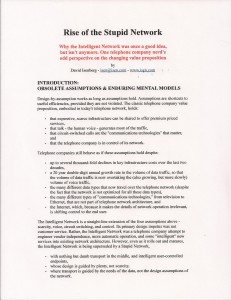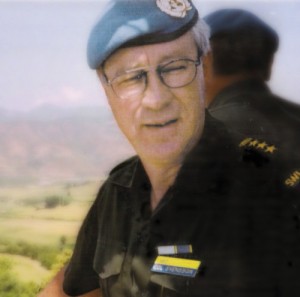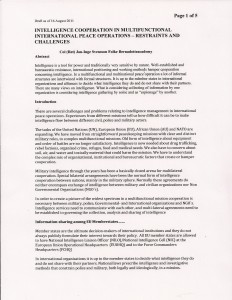
My very close friend Mike Lofgren, and Republican of the Old School, one of the smartest people I have ever met, backs out of the Capital Hill Saloon with both guns blazing. Knowing the truly dedicated people like Mike in government over the years is one of the things that made my 33 years in government service both a privilege and honor for which I will remain ever thankful.
Chuck Spinney
Ste Maxime, France
Goodbye to All That: Reflections of a GOP Operative Who Left the Cult
by: Mike Lofgren,
Truthout, 3 September 2011
Barbara Stanwyck: “We're both rotten!”
Fred MacMurray: “Yeah – only you're a little more rotten.”
– Double Indemnity (1944)
Those lines of dialogue from a classic film noir sum up the state of the two political parties in contemporary America. Both parties are rotten – how could they not be, given the complete infestation of the political system by corporate money on a scale that now requires a presidential candidate to raise upwards of a billion dollars to be competitive in the general election? Both parties are captives to corporate loot. The main reason the Democrats' health care bill will be a budget buster once it fully phases in is the Democrats' rank capitulation to corporate interests – no single-payer system, in order to mollify the insurers; and no negotiation of drug prices, a craven surrender to Big Pharma.
But both parties are not rotten in quite the same way. The Democrats have their share of machine politicians, careerists, corporate bagmen, egomaniacs and kooks. Nothing, however, quite matches the modern GOP.
Full safety copy with added emphasis below the line.
Continue reading “Chuck Spinney: Hill Staffer Expose of the GOP”







